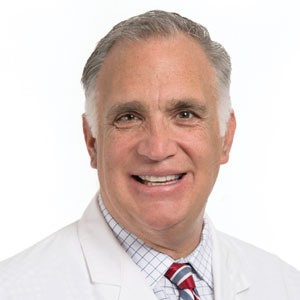Transforming Cardio-Vascular Healthcare Systems
By Vincent J Pompili MD.
FACC, FSCAI, SVP, Novant Health
The Technology Intervention
From a technology standpoint, the evolution and development of neoteric technologies like trans-catheter valves, drug-eluting stents, implanted stimulators, and ICDs have revolutionized the cardiac healthcare sector. While developing and marketing healthcare products, there are standards on which the products are categorized. Simple products like internal pacemakers are abundantly available in the market and can be purchased from different vendors. While complex products like trans-catheter valves, drug-eluting stents, and implanted stimulators are developed by a few market leaders and these developers control the purchase price of those products. For patients suffering from critical ailments like generic lipid disorder, costly drugs and devices like PK inhibitors are required to cure the disease. The cost of every drug associated with heart failures has however sky-rocketed. In order to address the pricing predicament, 80 percent of the pharmaceutical establishments are undertaking initiatives to provide patients with cheaper drugs.
Owing to certain regulations exercised by FDA, the U.S. healthcare industry was lagging behind other healthcare industries around the globe in terms of developing and adopting latest technologies. Although past few years were not entirely pervasive in terms of adopting latest technologies, FDA has now become agile in its functionalities paving the way for developers to evolve latest technologies and revamp the health-care facilities.
Innovations in Cardiovascular Care
Today, for instance, the trans-catheter valves help patients tackle the inoperable severe aortic stenosis. By using the valve to treat patients, we brought down the mortality ratio from a staggering 50 percent to less than 20 percent. Having achievedsubstantial positive results from theapplication of TAVR devicetherapy, we are now taking leaps towards micro-valve replacement. It is more complicated in terms of the technology development as the anatomy position of the micro-valve is not direct from an engineering perspective. Furthermore, we are also continuing our research with inter coronary stenting. For patients having severe coronary obstructions, wefollow a procedure where we approach from the patient's wrist and place a catheterto their heart in order to completely open 3 to 4 blocks in the blood vessels. The process is fast and better that open-heart surgery as the patient gets discharged on the same day or the next day of the treatment process.
Another area of technology that I have been deeply involved in terms of research is the field of cardiovascularregenerative medic- ine. In this sector, we leverage tissue engineering and plant stem cell cardiomyocytes in patchesand finally apply the patch to the heart in order to improve contractibility. Also, from an electro-physiologic perspective, leadless pacemakers are to be launched in the market soon. Research on developing and deploying leadless pacemakers and implantable cardioverter defibri-llatorsthat can be placed through the venal system are underway. We have definitely come a long way with a diverse array of devices and drugs to positively impact on quality of life.
Dr. Vincent J. Pompili, MD leads heart and vascular services including cardiac, thoracic and vascular surgery across the Novant Health system's four-state area (Virginia, North and South Carolina, and Georgia). Prior to joining Novant Health, Pompili served in leadership role at the University of Nebraska Medical Center in Omaha, Nebraska, where he also served as professor of internal medicine and chief of cardiovascular medicine. Before that, he held clinical leadership positions with dual academic appointments at Ohio State University Wexner Medical Center in Columbus, Ohio; University Hospitals Case Medical Center at Case Western Reserve University in Cleveland; and Indiana University Medical Center in Indianapolis.
Pompili completed medical school at Case Western Reserve University and did postgraduate training at Johns Hopkins University (internal medicine), University of Michigan (cardiology and molecular and cellular biology) and Mayo Graduate School of Medicine (interventional cardiology). He also served as a senior associate consultant at the Mayo Clinic in Rochester, Minnesota, following his interventional cardiology fellowship.

Dr. Vincent J. Pompili, MD
About the Author
"The evolution and development of next generation of technologies like trans-catheter valves, drug-eluting stents, implanted stimulators, and ICDs have revolutionized the cardiac healthcare sector"
As cardio-vascular doctors, we are striving diligently to address the associated complications and death from cardiac disease. For a large population of patients in the U.S. who succumb to heart failure, Cardiac transplantation is an option but we are limited by the number of heart donors who are available in the U.S. Being an interventional cardiologist myself, I know that an individual's failing heart and vascular health is on top priority and requires periodic monitoring, high-quality diagnosis,and treatment. Several devices and drugs are beingdeveloped in order to reduce the heart associated fatalities.